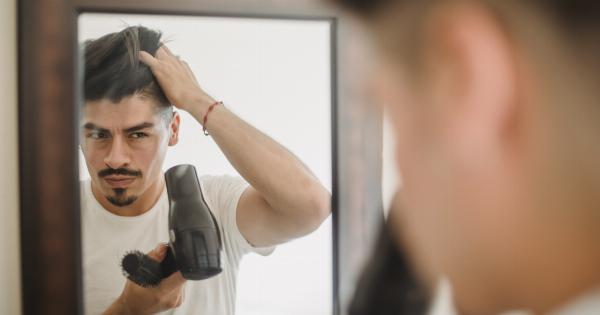Long working hours, high-stress levels, and a poor lifestyle are a recipe for a range of health problems, and hair loss is one of them. Hair loss is a common problem that affects people from all age groups, ethnicities, and genders.
It is often associated with genetic factors, but there are other underlying factors that contribute to hair loss, including long working hours.
What is Hair Loss?
Hair loss is a common condition that affects millions of people across the globe. The condition is also known as alopecia, and it can occur in various forms, ranging from mild hair thinning to complete baldness.
Hair loss can occur on the scalp, beard, eyebrows, or anywhere in the body where there is hair.
Causes of Hair Loss
There is a range of factors that can cause hair loss, including:.
- Genetics
- Hormonal changes
- Nutritional deficiencies
- Medical conditions
- Stress
- Long working hours
- Trauma or injury
- Hair treatments and styling
How Does Working Long Hours Contribute to Hair Loss?
Working long hours is one of the most significant factors that contribute to hair loss. Prolonged working hours mean that you have less time to care for your hair, leading to neglect.
People who work for long hours are also likely to experience high-stress levels, which trigger hair loss.
The body responds to stress by releasing cortisol hormone, which can disrupt the hair growth cycle.
Prolonged exposure to cortisol can cause a condition known as telogen effluvium, which occurs when the hair follicles enter a resting phase, causing the hair to stop growing and fall out.
Working long hours can also affect your lifestyle, leading to poor nutrition and lack of exercise. A poor diet that is low in essential nutrients such as iron, vitamins, and proteins can lead to hair loss.
Preventing Hair Loss
While working long hours may be unavoidable for many people, there are several things that you can do to mitigate the effects of hair loss. These include:.
- Taking breaks- Ensure you take frequent breaks throughout the day to rest and stretch your body. This also helps to reduce stress levels
- Ensure you are getting enough sleep- Aim for at least 7-8 hours of sleep each night to help your body recover from the day’s stress and promote overall health
- Stay hydrated- Drink enough water throughout the day to keep your scalp hydrated and promote hair growth
- Eat a healthy and balanced diet- Ensure your diet is rich in essential nutrients such as iron, vitamins, and proteins to promote hair growth and prevent hair loss
- Avoid harsh hair treatments- This includes bleaching, straightening, and using chemical treatments on your hair.
- Reduce stress- Practice stress management techniques such as meditation, yoga, or deep breathing to help you relax and reduce stress levels
- Seek medical attention- If you experience excessive hair loss, consult your doctor, who can diagnose the underlying condition and recommend a treatment option
Conclusion
Hair loss is a prevalent problem that affects many people worldwide. While genetics is a significant factor, lifestyle and environmental factors such as long working hours can also contribute to hair loss.
It’s important to take steps to reduce stress levels, eat a healthy and balanced diet, and avoid harsh hair treatments to mitigate the effects of hair loss.

























